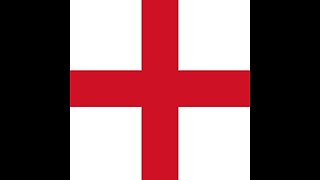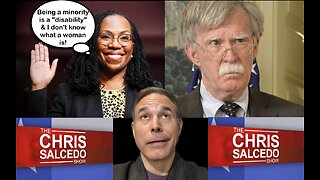Premium Only Content

Reese Mogg, David Kurten. England and TREASON. It cannot be pardoned! Watch
Treason is deemed too heinous to be forgiven because it directly threatens the foundation of the state and the sovereign's authority. NO ONE CAN PARDON TREASON.
The principle that treason cannot be pardoned by the monarch or executive authority has its roots in English constitutional history. It underscores the gravity of treason as a crime against the state and the monarch's sacred duty to the realm.
Key Explanation
Treason as an Unpardonable Offense:
Treason is deemed too heinous to be forgiven because it directly threatens the foundation of the state and the sovereign's authority.
The act of betrayal is considered not merely a crime against the monarch but against the collective safety and order of the realm.
Limit on the Royal Prerogative:
The monarch traditionally held the prerogative of mercy, including issuing pardons. However, Lord Somers and Sir John Holt argued that treason lies outside this scope because it is an affront to divine and earthly order.
This limitation reflects the belief that such a crime warrants divine judgment, not human forgiveness.
Role of Subjects and Divine Justice:
The notion that it is for "subjects of the realm to arrange the meeting" implies that punishment for treason is a duty of justice that subjects must fulfill, leaving ultimate judgment to God.
Citations and Historical References
Lord John Somers:
Somers was a prominent constitutional thinker and played a key role in the drafting of the Bill of Rights 1689. While not explicitly written in his works, his broader constitutional arguments emphasize the limits of royal power in matters of justice.
Sir John Holt:
Chief Justice Holt (1642–1710) was a defender of the rule of law and the idea that no one, including the monarch, is above it. His rulings and opinions frequently upheld the principles of constitutional limitations on prerogatives.
Legal Precedent:
The principle that treason is beyond pardon is reflected in practices such as the Treason Act 1351, which codified treason as the gravest crime.
In constitutional law, the Bill of Rights 1689 further limited royal prerogatives and reinforced parliamentary authority over such grave matters.
The Role of God:
The idea that treason is for "God to decide" stems from deeply rooted Christian theology of justice during this era, where divine authority was seen as paramount in cases of extreme moral offense.
Summary
Treason is deemed an unpardonable crime under English constitutional tradition, as argued by figures like Lord Somers and Sir John Holt. This reflects the principle that the monarch's prerogative of mercy does not extend to crimes of such severity, leaving ultimate judgment to God. This principle is rooted in the legal and moral framework of the Treason Act 1351 and the constitutional balance codified in the Bill of Rights 1689.
-
 1:00:30
1:00:30
The Full English Show
8 days agoSomething very strange is about to happen.
4.7K42 -
 1:49:03
1:49:03
Dear America
2 hours agoDems Are The Party Of TERRORIST & VIOLENT CRIMINALS! Jon Bolton INDICTED! Trump Threatens Hamas!
72.4K59 -
 LIVE
LIVE
Dr Disrespect
2 hours ago🔴LIVE - DR DISRESPECT - ARC RAIDERS - THE ULTRA EXTRACTION GAME
1,149 watching -
 LIVE
LIVE
Badlands Media
8 hours agoBadlands Daily: October 17, 2025
3,342 watching -
 LIVE
LIVE
Matt Kohrs
12 hours agoLive Trading Futures & Options || Payday Friday!!!
527 watching -
 LIVE
LIVE
LFA TV
15 hours agoLIVE & BREAKING NEWS! | FRIDAY 10/17/25
2,826 watching -
 1:45
1:45
From Zero → Viral with AI
6 hours agoAI Isn’t Taking Over — It’s Leveling the Playing Field | Work Smarter, Not Harder
9.02K6 -
 1:09:36
1:09:36
Chad Prather
18 hours agoHow to Love Like Jesus in a World That’s Lost Its Heart!
44.1K27 -
 1:05:41
1:05:41
Crypto Power Hour
3 hours ago $1.12 earnedCrypto Trading Strategies You Need to Know
15.4K6 -
 1:54:44
1:54:44
The Chris Salcedo Show
14 hours ago $3.57 earnedReckoning on Injustices Perpetrated Against Americans
21K2